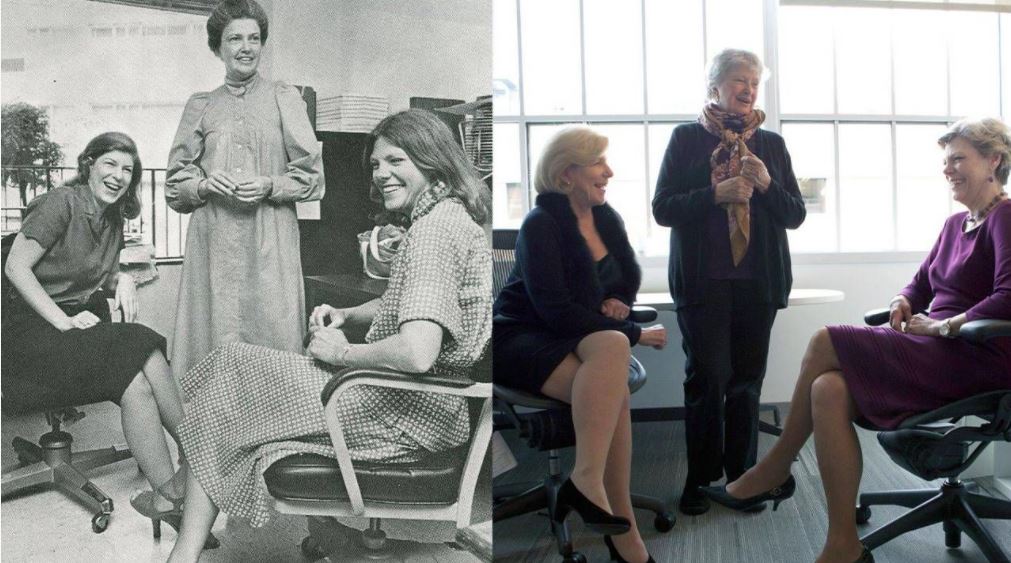


Reflections on My Days Working With the ‘Founding Mothers’ of NPR
From Richard Harris, writing for Next Avenue…
With National Public Radio (NPR) approaching its 50th anniversary and the release of the book “susan, linda, nina & cokie” about NPR broadcasters Susan Stamberg, Linda Wertheimer, Nina Totenberg and Cokie Roberts, Next Avenue has published an article by Richard Harris, “The Founding Mothers of NPR.” Harris worked at NPR for years with those groundbreaking women and offers a personal account here.
Sometime in the early 1970s, word spread around my college radio station outside Chicago that a new public radio network had recently been launched in Washington, D.C. National Public Radio was apparently desperate for content.
Ted Koppel paid NPR the biggest compliment when he told me that he wanted “Nightline” to be more like “All Things Considered.”
So, this undergrad put some stories together including one during my senior year about the controversial artificial sweetener cyclamate — and was a bit surprised to be sent to WBEZ, the Chicago public radio station, to feed it over a phone line to the network for NPR’s afternoon newsmagazine “All Things Considered.” And then, to hear it on the air on a show I admired.
As I was preparing to graduate from Northwestern, someone at NPR tipped me off to a job at WOI Radio, the public radio station in Ames, Iowa that was reported to be one of the stronger stations in the system.
One day, doing a statewide newscast there, I learned an important lesson. If you’re from Boston and unfamiliar with different types of cattle, it’s best to ask a local how to pronounce ‘heifer’ before you go on the air and make a fool of yourself. (For the record, it’s HEFF-er, not HIGH-fer). The phone lines lit up with listeners asking: “Who is that city slicker doing the news?”
Before I could do any more damage, Senate Majority Leader Robert Byrd gave NPR permission to air gavel-to-gavel debate from the Senate chamber. This historic decision prompted a call from NPR headquarters in Washington, D.C., asking if I would be among six member-station producers to temporarily relocate to Washington to help produce “All Things Considered” while the regular staff was shifted to the historic broadcasts.
It all became official on February 8, 1978 when NPR’s Linda Wertheimer spoke these words: “Today is the first time in our 200-year history that the debates in the Senate will be heard far beyond the chamber and its visitor’s gallery.” So began nine weeks of debate on the Panama Canal Treaty, broadcast live on NPR stations.
Wertheimer recently told me it was a highlight of her distinguished career: “The thing the Democrats were so panicked about was they didn’t think they could explain giving away the Canal. It was part of our mythology, and to give it away was a bad idea.”
The morning after I arrived in Washington, I came down for breakfast at the hotel where NPR put up its temporary producers and noticed Sen. George McGovern, the 1972 Democratic presidential nominee, walk in. That was the moment I knew I wasn’t in Iowa anymore.
For the rest, click here.